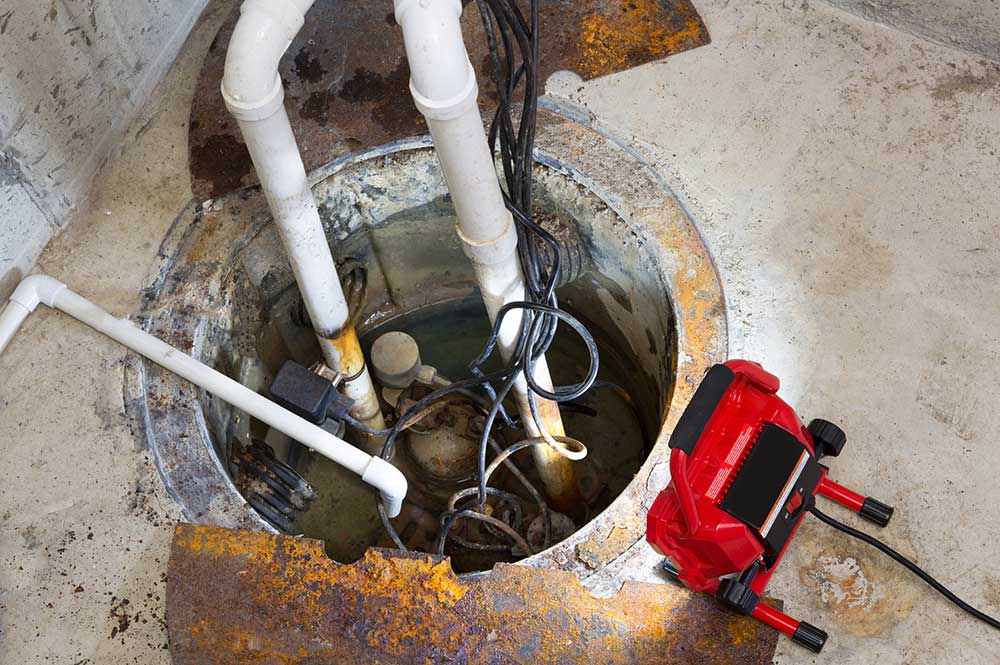Understanding the Trick Components of Effective Water Purification Systems

Relevance of Water Purification Solution
Water filtration systems play a vital role in guaranteeing accessibility to secure and tidy drinking water by properly eliminating contaminations and contaminants. These systems are essential in attending to the growing issues over water top quality and the potential health and wellness risks connected with eating contaminated water. By utilizing numerous purification devices such as reverse osmosis, triggered carbon, and UV sterilization, water filtration systems can successfully get rid of hazardous materials like bacteria, infections, heavy metals, and chemicals from the water system.
Furthermore, water filtering systems help to enhance the preference and odor of water by removing chlorine, sediments, and other contaminants that can affect its high quality. Water Filtration Systems. This improvement in water high quality not just makes it much more palatable yet likewise encourages individuals to consume alcohol a sufficient quantity of water daily, advertising much better hydration and overall health and wellness
Kinds Of Purification Components

Physical filters are designed to literally strain out pollutants from the water. These filters can be made from materials like ceramic, carbon, or perhaps sand, and they work by capturing fragments larger than the filter's pores as water travels through.
Chemical filters utilize different chemical processes to eliminate pollutants from the water. Examples consist of triggered carbon filters, which adsorb pollutants, and turn around osmosis membrane layers, which use stress to separate contaminants from the water.
Biological filters make use of living microorganisms like algae or germs to damage down organic issue and contaminants in the water. These filters are commonly utilized in wastewater therapy plants or all-natural water filtration systems.
Recognizing the different kinds of purification elements is vital for selecting one of the most appropriate water filtering system for certain filtration requirements.
Function of Sediment Filters
Debris filters play an important function in water filtration systems by effectively catching strong fragments put on hold in the water. These filters are generally the initial line of defense in a purification system, getting rid of larger particles such as sand, silt, dust, and rust before the water relocates with finer purification phases. By trapping these sediments, the filters prevent them from getting to downstream parts, hence expanding the life-span and effectiveness of the entire system.
Overlooking this upkeep can lead to blocking, reduced water circulation, and compromised filtering effectiveness. Generally, sediment filters are essential elements that add dramatically to the efficiency of water filtration systems.
Function of Activated Carbon Filters
Playing an important function in water filtration systems, turned on carbon filters are instrumental in getting rid of contaminations and contaminants from the water system. These filters are designed to adsorb and trap a have a peek at this site large variety of toxins, consisting of chlorine, volatile organic substances (VOCs), chemicals, and herbicides. here The turned on carbon material has a large surface area, permitting the effective capturing of pollutants via a process called adsorption. As water travels through the filter, the turned on carbon draws in and holds onto the pollutants, ensuring that the water that appears on the other side is cleaner and much safer for consumption.
Turned on carbon filters are highly effective at improving the preference and odor of water by lowering chemicals that can impact its quality. They are likewise efficient in getting rid of certain hefty metals like lead and mercury. Additionally, these filters can assist protect against the build-up of germs and algae in water, more boosting its overall top quality. Because of their versatility and integrity, triggered carbon filters are a key element in ensuring that water is cleansed to the highest possible requirements prior to reaching consumers.
Comprehending Reverse Osmosis Solutions
Reverse osmosis systems are innovative water purification systems that employ a sophisticated process to eliminate contaminants and contaminations from alcohol consumption water. These systems function by applying stress to the water, forcing it via a semi-permeable membrane layer.
One secret advantage of reverse osmosis systems is their capacity to eliminate a vast array of contaminants, including hefty steels, liquified solids, viruses, and bacteria. This makes them very efficient in improving the general quality and safety and security of alcohol consumption water. Additionally, reverse osmosis systems are relatively low-maintenance and can be set up under the sink or in a main purification system, offering convenient accessibility to tidy water throughout the family. Overall, understanding just how reverse osmosis systems work can assist individuals make notified decisions regarding their water purification requirements.
Final Thought
In final thought, efficient water purification systems are important for ensuring risk-free and clean drinking water. By recognizing the function and duty of each component, individuals can make informed choices when picking a water filtering system.
Water purification systems play an essential role in making sure access to clean and safe drinking water by efficiently eliminating pollutants and pollutants. By using different filtration systems such as reverse osmosis, turned on carbon, and UV sanitation, water filtering systems can efficiently remove dangerous compounds like germs, infections, hefty steels, and chemicals from the water supply.
Sediment filters play best site a crucial role in water filtering systems by effectively capturing solid bits put on hold in the water (Water Treatment).Playing a vital role in water purification systems, triggered carbon filters are crucial in eliminating pollutants and contaminants from the water supply.Reverse osmosis systems are advanced water purification systems that use a sophisticated procedure to remove impurities and impurities from alcohol consumption water
Comments on “Advanced Water Softeners: Bid Farewell to Hard Water Woes For Life”